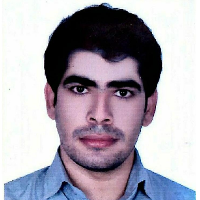Effects of Group Reality Therapy on General Health and Responsibility in Orphaned and Abandoned Adolescents
Orphaned and abandoned adolescents living in welfare boarding centers due to the lack of family support are at further risk of psychological damage than their other counterparts. The increasing number of children and adolescents orphaned and abandoned and observing maladaptive behaviors and emotional disorders in those caused by separation from the family structure elevates the need to pay special attention to general health and the responsibility of this group. Accordingly, group reality therapy, as an approach for monitoring and controlling behaviors and accepting responsibility, can effectively improve general health and responsibility among these groups. Reality therapy significantly emphasizes freedom and responsibility. In this approach, behavior is a kind of choice, i.e., made by the individual; each subject is responsible for their choices. Thus, the present study aimed to investigate the effects of group reality therapy on general health and responsibility among orphaned and abandoned adolescents.
This was a quasi–experimental study with pretest–posttest–follow–up and a control group design. The study's statistical population consisted of all male adolescents of orphaned and abandoned aged 12–18 years residing in the child and adolescent care centers of orphaned and abandoned affiliated with the Tehran Welfare Organization in 2019. Of them, 40 individuals were selected using the multistage cluster sampling method according to the research inclusion and exclusion criteria. The study samples were randomly assigned to the experimental and control groups (n=20/group). The inclusion criteria of the research were consent to participate in the research; the age range of 12 to 18 years; having a higher level of education than the third grade; no psychiatric or medical illnesses that require medication, and not taking psychotropic drugs regularly. The exclusion criteria included a history of hospitalization in the psychiatric ward, attending counseling and psychotherapy sessions other than the intervention, not attending intervention sessions regularly, and not cooperating in completing questionnaires at all stages. In pretest, posttest, and follow–up stages, all participants completed the General Health Questionnaire (GHQ–28) (Goldberg & Hillier, 1979) and the subscale of responsibility of the California Psychological Questionnaire (Gaff, 1987). No intervention was performed for the control group. Group reality therapy, i.e., designed based on reality therapy techniques and the book Glasser's Theory of Choice, Sahebi's translation (2020), was performed for the experimental group in seven 120–minute sessions. At the end of the therapeutic interventions and 2 months later, both study groups were re–evaluated by the research questionnaires. The obtained data were analyzed by descriptive statists (mean & standard deviation) and inferential statistics, including repeated–measures Analysis of Variance (ANOVA) and Bonferroni post–hoc test in SPSS at the significance level of 0.05.
The present study results revealed a significant difference between the pretest, posttest, and follow–up scores of general health and responsibility (p<0.001). Additionally, there was a significant difference between the experimental and the control groups concerning general health (p=0.029) and responsibility (p=0.034). Furthermore, the difference in the mean scores of general health (p<0.001) and responsibility (p=0.007) between the pretest and posttest stages was significant. Besides, the difference between the pretest and follow–up stages was significant for the mentioned variables (p<0.001). The difference in the mean scores of general health (p=0.779) and responsibility (p=0.806) between the posttest and follow–up stages reflected that the effect of the intervention remained stable over time.
The obtained findings suggested group reality therapy's effectiveness in improving orphaned and abandoned adolescents' general health and responsibility. Therefore, this treatment can be used as an effective method to increase the general health and responsibility of orphaned and abandoned adolescents.
- حق عضویت دریافتی صرف حمایت از نشریات عضو و نگهداری، تکمیل و توسعه مگیران میشود.
- پرداخت حق اشتراک و دانلود مقالات اجازه بازنشر آن در سایر رسانههای چاپی و دیجیتال را به کاربر نمیدهد.



